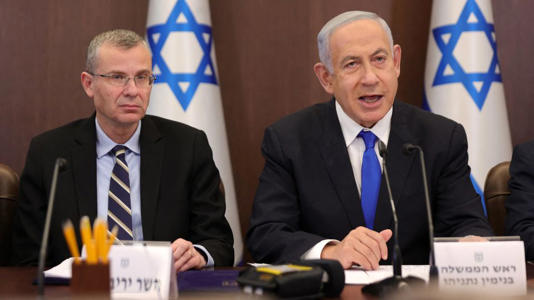In the realm of politics, leaders are often confronted with unexpected challenges that test their resilience and ability to govern effectively. Israeli Prime Minister Benjamin Netanyahu recently faced such a challenge when he underwent surgery to treat a hernia, temporarily sidelining him from his duties as the nation grappled with internal and external pressures. This article delves into the implications of Netanyahu’s health setback on Israeli politics, regional dynamics, and the ongoing conflict with Hamas in Gaza.
Netanyahu’s Health Condition and Surgery:
At the age of 74, Netanyahu’s health has become a topic of concern among Israelis and international observers alike. His recent diagnosis of a hernia during a routine examination prompted the need for surgical intervention. The procedure, described as successful by medical professionals at Hadassah Hospital Ein Kerem in Jerusalem, temporarily rendered Netanyahu incapacitated and necessitated the appointment of Deputy Prime Minister Yariv Levin to assume his responsibilities.
Impact on Israeli Politics:
Netanyahu’s absence from the political scene, albeit temporary, has raised questions about the stability of his government and the continuity of key policy initiatives. As one of Israel’s longest-serving prime ministers, Netanyahu’s leadership has been characterized by a mix of domestic reforms, diplomatic maneuvering, and security challenges. His absence creates a void that his political opponents may seek to exploit, while his supporters express confidence in his eventual return to power.
Regional Dynamics and Conflict Resolution:
The timing of Netanyahu’s surgery coincided with renewed efforts to broker a ceasefire between Israel and Hamas, the militant group governing the Gaza Strip. As negotiations unfolded in Cairo, Netanyahu’s absence added a layer of uncertainty to the diplomatic process. With Israel engaged in ongoing hostilities with Hamas, the absence of its prime minister during critical negotiations underscores the delicate balance of power in the region and the need for steady leadership to navigate complex geopolitical challenges.
Domestic Concerns and Public Perception:
Netanyahu’s health scare has also reignited discussions about his fitness to lead and the broader issue of leadership succession in Israeli politics. While some express confidence in Netanyahu’s ability to rebound from his health setback, others raise concerns about the long-term implications of his recurring health issues. The public’s perception of Netanyahu’s leadership during times of crisis will undoubtedly influence the outcome of future elections and shape the trajectory of Israeli governance.
The Role of Medical Intervention and Rehabilitation:
As Netanyahu recuperates from his surgery, the role of medical intervention and rehabilitation becomes paramount. The prime minister’s recovery process will not only determine his return to political duties but also serve as a testament to the resilience of the human spirit. Moreover, Netanyahu’s experience highlights the importance of prioritizing personal health and well-being in the demanding field of politics, where stress and pressure often take a toll on leaders’ physical and mental health.
In conclusion, Benjamin Netanyahu’s hernia surgery has cast a spotlight on the intersection of health, politics, and leadership in Israel. While the prime minister’s temporary absence has created uncertainty in the political arena, it also underscores the resilience of Israel’s democratic institutions and the adaptability of its leadership. As Netanyahu embarks on the path to recovery, the nation watches closely, aware of the profound implications of his health journey on Israeli politics and the broader Middle East landscape.
